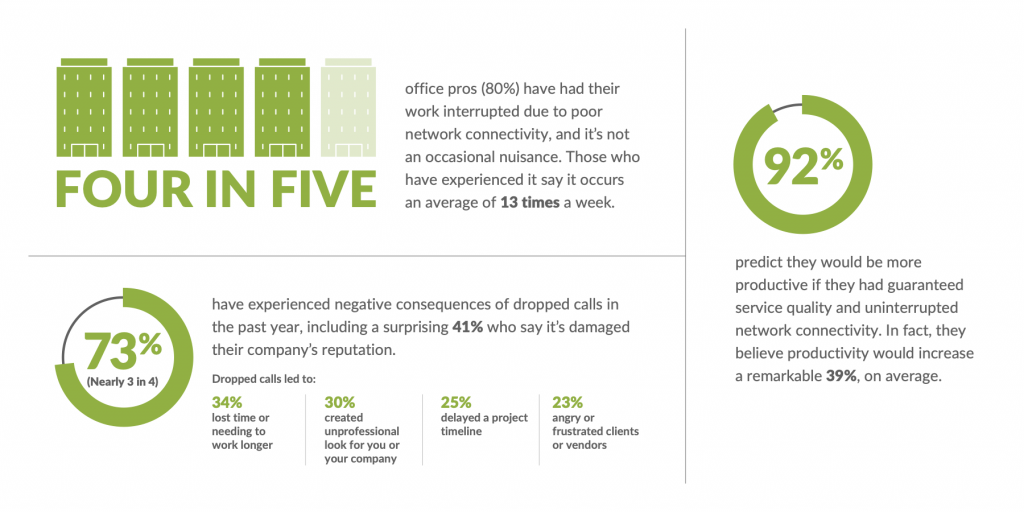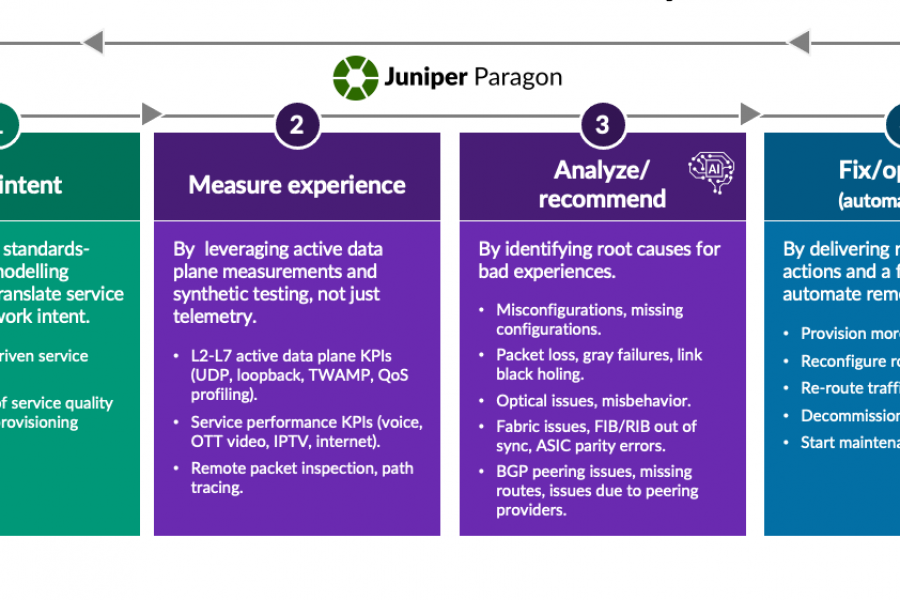A company’s entire operating system—applications, business processes, communications—all rely on one critical thing to function: network connectivity. When the network goes down, so does the system. Yet, while IT leaders and network operators unanimously recognize the importance of this critical infrastructure, many may not be aware of the scale of network connectivity issues and how much of an impact they actually have on businesses and employees.
Juniper Networks recently surveyed 1,000 U.S. office professionals to understand how often they experience connectivity issues and how it affects both their work and productivity. What was clear from the results was that network operators still have a significant opportunity to improve employees’ work experience with better connectivity. In a business world today where companies are not only competing for customers but also for employees, solving network connectivity problems is one of the essential employee services that can give them an advantage in both.
The Scale of Lost Connectivity and Productivity
In the Juniper survey, 80% of respondents said poor network connectivity interrupts their work, on average, two to three times per day. That’s 10 to 15 times per week – numbers that any leader should not be comfortable with. While not all connectivity issues are created equal—a slow-loading web page vs. a dropped sales video conference, for example—every single one is, at the very least, frustrating.
With many people still working from home in a remote or hybrid work environment, we may logically assume that connectivity issues are mostly due to weak home networks. But that’s not the case. While 38% of hybrid workers reported more than 10 network interruptions per week, workers who have returned to offices reported a median of five interruptions per week. That’s one per day in an office, with 29% reporting more than 10 per week.
In this world of remote, hybrid and in-office work, connectivity issues can happen anywhere. But a business’ bottom line doesn’t care where productivity is being lost, which is why a reliable network everywhere, all the time, is essential to stay competitive.
The Impact On Employee Experience and Retention
The Great Resignation. The Great Reshuffle. The Great Attrition. Whatever you want to call it, the fact remains the same: employees are on the move. The reasons are numerous, including lack of flexibility, low pay, benefits, autonomy, etc. Almost all of these fall into the category of employee experience. Ultimately, just in the way companies are building exceptional customer experiences, their future now relies on building exceptional employee experiences.
Of course, employees may not cite a lack of reliable internet as a reason for their unhappiness or restlessness, but network connectivity is clearly an essential foundation of their daily work and a quality service they expect from their company. In our survey, 73% of respondents experienced negative consequences from dropped calls in the past year, and 41% say it has impacted their company’s reputation. That’s demoralizing, especially when that dropped call could affect their performance or even compensation.
Big Problem, Big Opportunity
Not only is employee retention and an improved employee experience a potential boon for employers, the data also revealed a massive productivity opportunity too. 92% of respondents said uninterrupted network connectivity would boost their productivity by nearly 40%. This is a massive number that could have huge implications for companies that can take advantage of it.
The good news is that technologies like AI, automation and zero trust security can help operators improve their networks immediately. It’s a problem with a solution, today. As we can see from the research, the costs of lost connectivity are huge. The sooner companies and operators can address it, the sooner they can tap the massive opportunities of reliable network connectivity.



